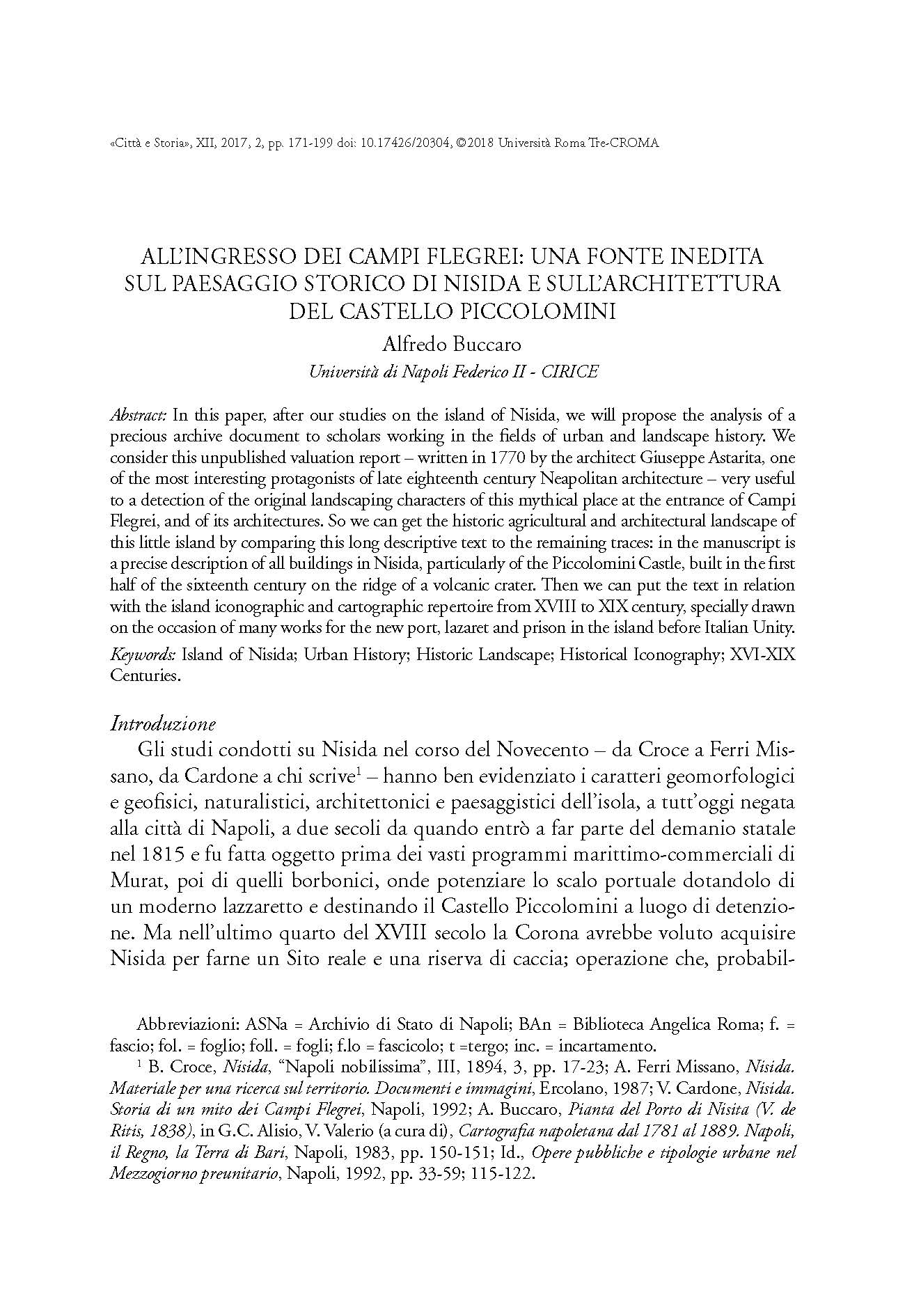All’ingresso dei Campi Flegrei: una fonte inedita sul paesaggio storico di Nisida e sull’architettura del Castello Piccolomini
6,00 €
In this paper, after our studies on the island of Nisida, we will propose the analysis of a
precious archive document to scholars working in the fields of urban and landscape history. We
consider this unpublished valuation report – written in 1770 by the architect Giuseppe Astarita, one
of the most interesting protagonists of late eighteenth century Neapolitan architecture – very useful
to a detection of the original landscaping characters of this mythical place at the entrance of Campi
Flegrei, and of its architectures. So we can get the historic agricultural and architectural landscape of
this little island by comparing this long descriptive text to the remaining traces: in the manuscript is
a precise description of all buildings in Nisida, particularly of the Piccolomini Castle, built in the first
half of the sixteenth century on the ridge of a volcanic crater. Then we can put the text in relation
with the island iconographic and cartographic repertoire from XVIII to XIX century, specially drawn
on the occasion of many works for the new port, lazaret and prison in the island before Italian Unity.
In this paper, after our studies on the island of Nisida, we will propose the analysis of a
precious archive document to scholars working in the fields of urban and landscape history. We
consider this unpublished valuation report – written in 1770 by the architect Giuseppe Astarita, one
of the most interesting protagonists of late eighteenth century Neapolitan architecture – very useful
to a detection of the original landscaping characters of this mythical place at the entrance of Campi
Flegrei, and of its architectures. So we can get the historic agricultural and architectural landscape of
this little island by comparing this long descriptive text to the remaining traces: in the manuscript is
a precise description of all buildings in Nisida, particularly of the Piccolomini Castle, built in the first
half of the sixteenth century on the ridge of a volcanic crater. Then we can put the text in relation
with the island iconographic and cartographic repertoire from XVIII to XIX century, specially drawn
on the occasion of many works for the new port, lazaret and prison in the island before Italian Unity.

